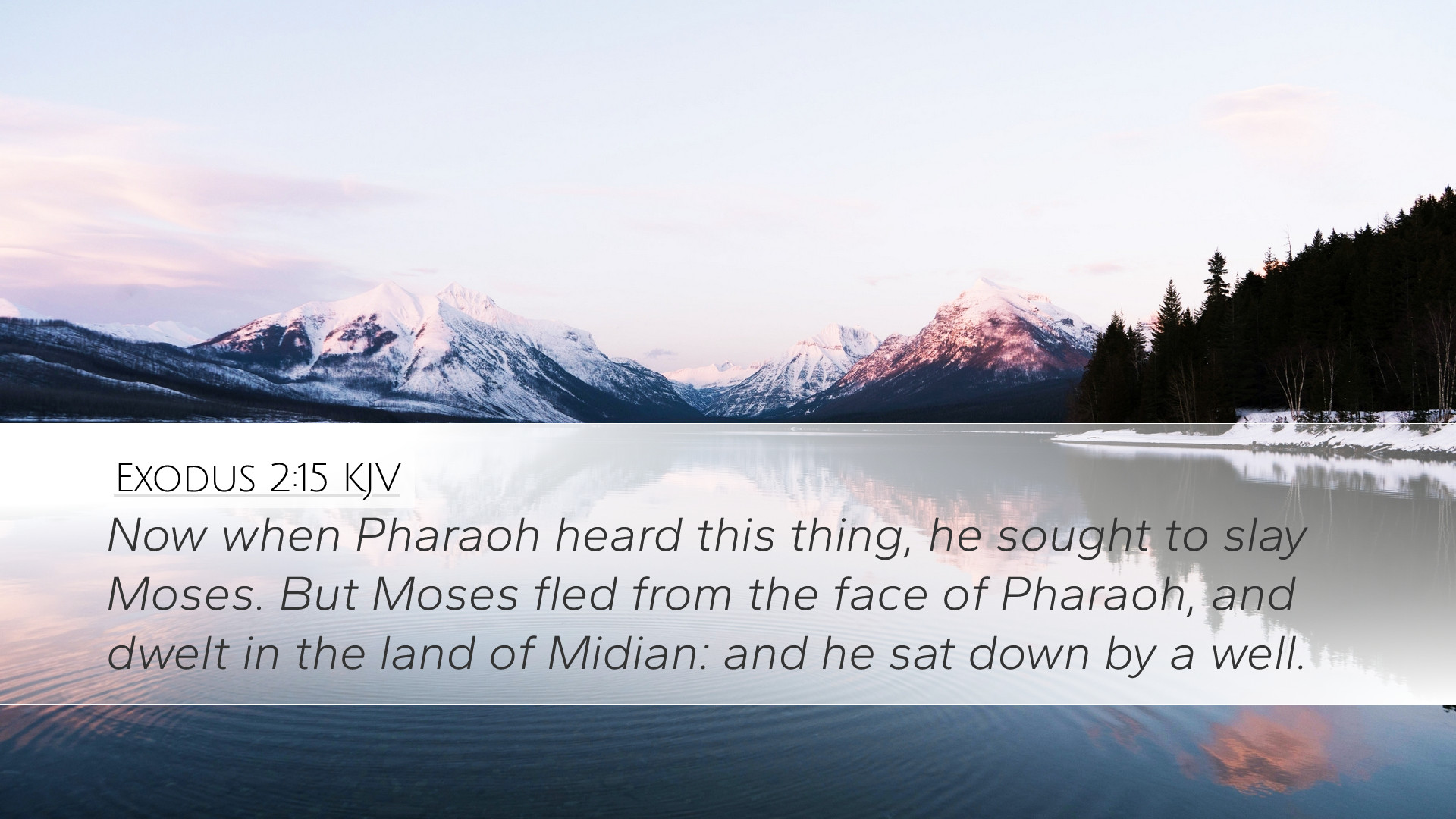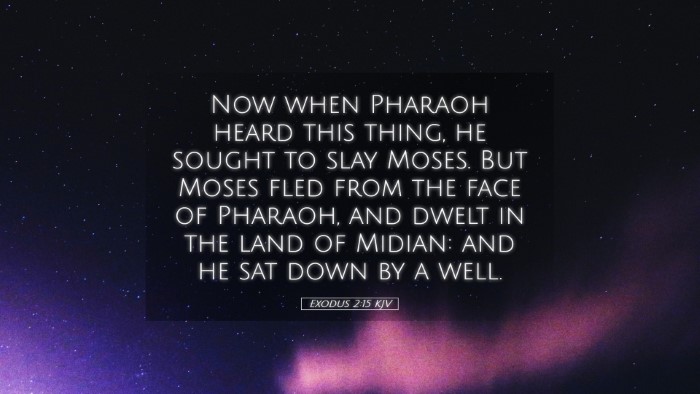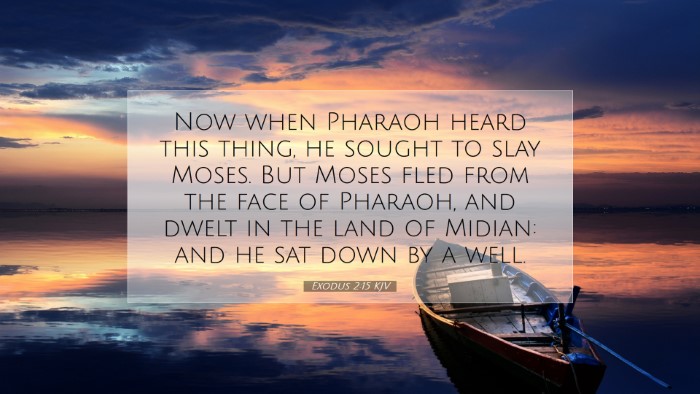Exodus 2:15 - Bible Commentary
Verse Context: Exodus 2:15 reads: "When Pharaoh heard of this matter, he sought to kill Moses. But Moses fled from the face of Pharaoh and dwelt in the land of Midian; and he sat down by a well." This verse marks a significant turning point in Moses' life, illustrating the initial rejection of his mission and the foreshadowing of his role as a deliverer.
Insights from Public Domain Commentaries
Matthew Henry's Commentary
Moses' Flight: According to Matthew Henry, Moses’ act of killing the Egyptian was a crucial moment that illustrated his early zeal for his people, but it also highlighted his impulsiveness. Here, Moses took justice into his own hands, which speaks to the potential for both good intentions and grave consequences in leadership.
Courage and Fear: The playwright of history, Pharaoh, upon hearing of Moses' act, was incited to anger, seeking to kill him. This illustrates the dangers of acting out of emotion without divine guidance. Moses’ immediate response in fleeing exemplifies a natural human fear when confronted with authority, depicting the precariousness of his situation.
God's Preparation: Furthermore, Henry suggests that this flight, while seemingly a setback, is part of God's preparation for Moses’ future role. It signifies a movement towards God's ultimate plan for the deliverance of Israel, emphasizing the theme that God often uses adverse situations to equip and train His servants.
Albert Barnes' Notes on the Bible
Historical Context: Albert Barnes provides insight into the historical context of this passage, noting that during this time, Egypt was embroiled in complex political dynamics that influenced Moses' standing as a Hebrew raised in the royal court. His actions can be seen as a bridging of his two identities, as he begins to embrace his Hebrew heritage while simultaneously drawing the ire of the Pharaoh.
Leadership Lessons: Barnes also emphasizes that Moses’ actions reveal lessons in leadership. His desire to free the oppressed reflected a righteousness but lacked wisdom, showcasing that true leadership is discerned through patience and prayer rather than rash actions. Thus, it serves as a reminder for pastors and leaders today about the importance of seeking God’s direction before acting.
Adam Clarke's Commentary
Theological Reflections: Adam Clarke dives into the theological implications of Moses’ flight. He notes that this turning point not only highlights the conflict faced by Moses but also serves as a testament to God’s providential care. Clarke asserts that this moment exemplifies how God can use human actions — even flawed ones — to produce His divine purposes.
Midian as a Place of Refuge: Clarke describes Midian as a significant setting for Moses, where he would learn humility and reliance on God. This period in Midian is essential for his character development and spiritual maturation, preparing him for the monumental task that awaits him—leading the Israelites out of slavery. This is a vital lesson for students and scholars about the role of preparation in God’s plan.
Key Themes and Applications
- The Importance of Divine Guidance: In moments of crisis or decision-making, the rush to action must be tempered with prayer and discernment.
- God's Sovereignty: Even in our mistakes, God's sovereign plan remains intact; understanding this offers hope and reassurance to believers.
- Spiritual Formation: Time spent in preparation, even in seemingly adverse conditions, can be crucial for effective future ministry and leadership.
- Identity and Responsibility: Moses’ dual identity raises questions about how we navigate our personal and communal responsibilities within the larger narrative of faith.
Conclusion
Exodus 2:15 is a rich passage that teaches important lessons about leadership, the human propensity to act impulsively, and God's amazing ability to bring about His purposes through our lives. As pastors, students, and scholars reflect upon this verse, may they remember the complexity of God’s plan, the requirement of divine guidance in our decisions, and the grace that covers our failures.


